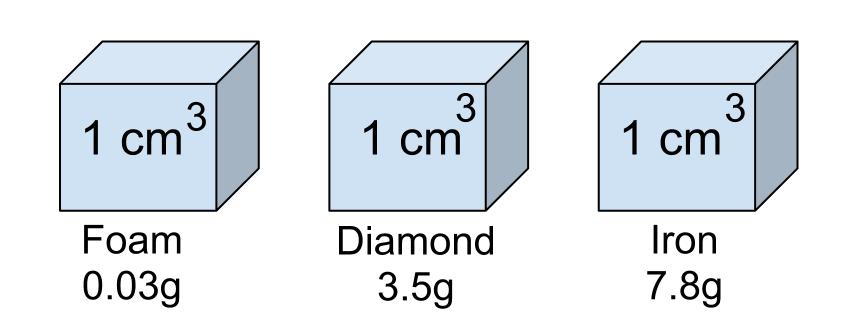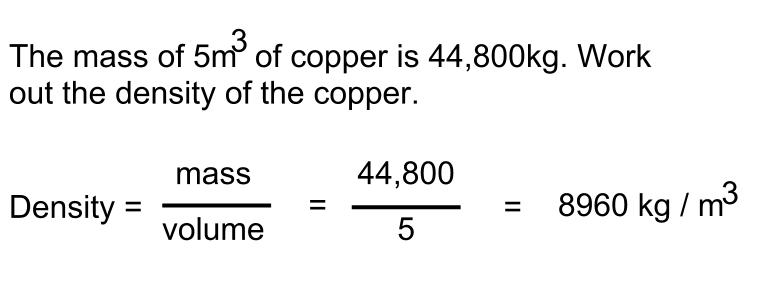How to calculate density can be very important in design and construction..
Density is measured by how much something weighs for a fixed volume, usually a 1cm cube. It’s a measurement that compares different materials of the same size.
Download the quick test density questions
This is a grade 5 GCSE question:
“An 8cm solid hexagonal prism has a cross-section area of 15cm squared. The prism is made from wood with a density of 0.8 grams per cm cubed. calculate the mass of the prism.”
Here’s another example of a grade 5 GCSE question:
“The mass of 5m cubed of copper is 44800 kg. Work out the density of the copper”
Download the Quick test density questions
Something that is denser has more matter or ‘stuff’ (atoms, particles etc) packed into the same space.
So:
Even though each of these blocks take up the same space – they all weigh a different amount. Some are much easier to lift than others.
The easiest way to work out the density of any of these materials is to take a cubic centimetre and then weigh it. For a cube of iron this might be difficult :-), but you could try an experiment with a cube of foam. The ‘weight’ you get will be 0.03 grams per cubic centimetre which is the measurement of density.
You could also try wood and should get around 0.8g per cm cubed.
OK we need to change a small detail:
‘Weight’ is better described as ‘mass.’
There isn’t really a lot of difference, unless you’re in space. Basically weight is to do with the force of gravity, mass is the weight of ‘stuff’ and doesn’t change wherever you are.
The important thing is the density measurement. If you measure the wood as 0.8g per cm cubed, it’ll look like:
“Per” is the maths word for “divided by.”
In other words, the measurement of density is:
So density is calculated by dividing mass by volume.
The usual measurements are:
- g/cm cubed
- or
- kg/m cubed
– depending upon the size of the item.
Grade 5 GCSE question on how to calculate density:
Knowing how to calculate density of a material can be very important in:
- Construction – strong but light materials are constantly being developed
- Purity – 99% pure gold
- Identifying a substance – calculating the density and then checking printed reference data
- Pipe design – knowing the density helps to calculate whether a large or small pipe is required
- ..and many others – please add a comment below!
View the videos on our YouTube channel:
How to calculate mass – density question
How to calculate density GCSE question




Leave a Reply